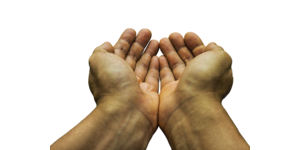Warning: Trying to access array offset on value of type bool in /home/daneciolino/public_html/lalegalethics/wp-content/plugins/footnotation/footnotation.php on line 193

New York, like most states, prohibits a lawyer from providing financial assistance to a client to cover day-to-day living expenses.1 On April 24, 2020, the New York City Bar urged the New York Court of Appeals to amend that state’s Rule 1.8(e) to permit a lawyer to buy “groceries, clothes or medical supplies” under what would be a new “humanitarian exception” permitting “financial assistance to those in need during this unprecedented time.” See New York City Bar, Request for Urgent Amendment to Rule 1.8(e) to Provide “Humanitarian Exception” (Apr. 24, 2020).
Louisiana has long permitted lawyers to provide such financial assistance to clients. Louisiana’s Rule 1.8(e) diverges significantly from the ABA model rule. Under Model Rule 1.8(e), a lawyer “shall not provide financial assistance to a client” in connection with litigation other than assisting with court costs and litigation expenses. In 2006, the Louisiana Supreme Court amended Louisiana Rule 1.8(e) to permit certain types of financial assistance unrelated to court costs and litigation expenses, but only under tightly-regulated circumstances. Prior to this revision, Louisiana Rule 1.8(e)–like the model rule–flatly prohibited lawyers from advancing living expenses to clients. Nevertheless, providing living expenses to clients was a well-established practice in Louisiana. See In re Maxwell, 783 So. 2d 1244, 1249 (La. 2001) (“Arguably, a plain reading of Rule 1.8 would indicate that any advance to a client, other than one for court costs and litigation expenses, would constitute a violation of this rule.”). This well-established practice stemmed from La. State Bar Ass’n v. Edwins, 329 So. 2d 437, 445 (La. 1976), a case in which the Louisiana Supreme Court held that a lawyer may advance “minimal living expenses” to a client to prevent the client from being forced into accepting an unfavorable early settlement. Id.
- HT to law blogger Karen Rubin, who cites authority suggesting that this prohibition can be traced back “to the Star Chamber Act of 1487 and the Statute of Liveries of 1504 “’which were intended to prevent wealthy landowners from bankrolling legal claims of their serfs as a means to gain more land and power for themselves.’” Comment 10 to ABA Model Rule 1.8 articulates this policy basis for the rule: permitting such assistance “would encourage clients to pursue lawsuits that might not otherwise be brought and because such assistance gives lawyers too great a financial stake in the litigation.” See ABA Model Rule of Prof’l Conduct r. 1.8, cmt. 10. ↵
